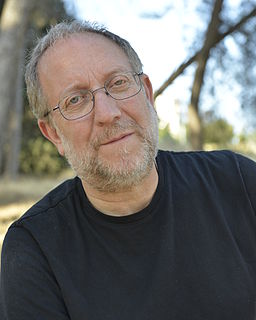A Quote by Daniel Dennett
Now that mobile phones and the internet have altered the epistemic selective landscape in a revolutionary way, every religious organisation must scramble to evolve defences or become extinct.
Related Quotes
But theological change happens though selective quoting. Every religious person does it: You quote those verses that resonate with your own religious insights and ignore or reinterpret those that undermine your certainties. Selective quoting isn't just legitimate, but essential: Religions evolve through shifts in selective quoting.
the heart of religion is not altered states but altered traits of character. For me, then, the test of a substance's religious worth or validity is not what kind of far-out experience it can produce, but is the life improved by its use? That's the test. Now, on that score, if you remove the "religious cocoon," the experiences don't seem to have much in the way of discernible, traceable effects.
There was once this viral photo of the Pope doing his Pope-mobile parade, and everyone had their phones up. But there was this one old woman looking over the fence so beautifully at him. She was totally in the moment. For me, then, I think there shouldn't be any phones at a Pope-mobile situation - or at a Beyonce concert.
Having access to mobile phones and being able to document your own life brings people together. Technology has a lot to do with how the world is developing at the moment because there are very raw and pure and primal emotions that people are communicating to each other over the Internet. It's like our new feathers, our new face paint. We're still trying to find love and friendship and cool music, but now it's over the Internet.









































